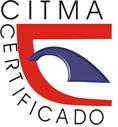Competency-based learning through human rights theory case studies in higher education
Keywords:
Competences, Learning, Legal skills, Case studiesAbstract
Planning university education by giving learning outcomes a central role requires an approach that does not focus exclusively on the teaching staff and the content they are trying to teach, but on the students and what they are able to learn and put into practice after the finalization of their studies. Designing a student-centered learning model requires the integration of general and specific competencies, which provide social, ethical, and personal transversal learning and scientific and professional learning, respectively. This paper attempts to describe learning through the design and evaluation of case studies for the acquisition of competencies in the subject of theory and foundations of human rights, a process that can be implemented in any subject corresponding to the field of social and legal sciences. The aim is to achieve, through the cases, that students acquire argumentative skills, understand and increase their responsibility and autonomy and develop resolutive attitudes that allow them to achieve better levels and results of educational and professional quality.
Downloads
Downloads
Published
Issue
Section
License

This work is licensed under a Creative Commons Attribution-NonCommercial 4.0 International License.
















